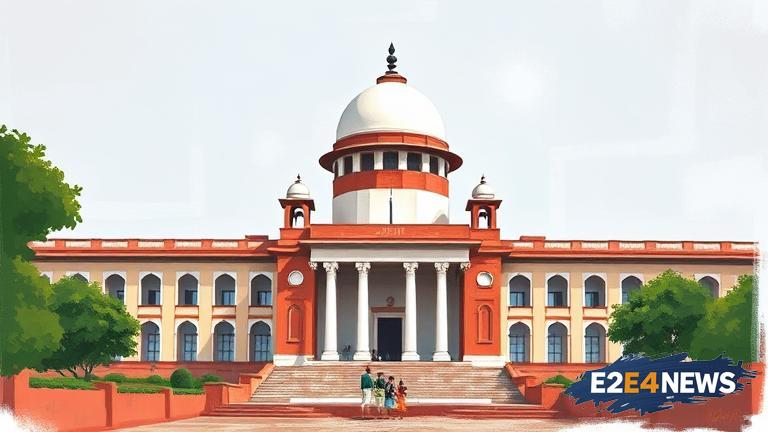The Allahabad High Court has granted bail to a man accused of forcing a woman to convert to Islam, in a case that has sparked controversy and debate. The court’s decision was based on the fact that the relationship between the two individuals began consensually, and that the woman had initially agreed to convert to Islam. However, the relationship later turned sour, and the woman alleged that she was forced to convert against her will. The man was arrested and charged with forced conversion, a serious offense under Indian law. The court’s decision to grant bail has been met with criticism from some quarters, with many arguing that the accused should not have been released on bail given the seriousness of the charges. The case has also sparked a wider debate about the issue of forced conversion in India, with many arguing that it is a serious problem that needs to be addressed. The Indian government has introduced several laws and initiatives aimed at preventing forced conversion, but many argue that more needs to be done to protect vulnerable individuals. The Allahabad High Court’s decision is likely to be appealed, and the case is expected to continue to generate controversy and debate in the coming weeks and months. The case has also raised questions about the role of the judiciary in protecting the rights of individuals, particularly women, in cases of forced conversion. Many have praised the court’s decision, arguing that it is a victory for individual freedom and autonomy. However, others have criticized the decision, arguing that it sends the wrong message and could embolden others to engage in similar behavior. The case is a complex one, and the court’s decision is likely to be scrutinized closely in the coming weeks and months. The Indian government has a responsibility to protect the rights of all individuals, regardless of their religion or background. The case has also highlighted the need for greater awareness and education about the issue of forced conversion, and the importance of promoting tolerance and understanding between different communities. The Allahabad High Court’s decision is a significant one, and it will be interesting to see how the case develops in the coming weeks and months. The court’s decision has been met with a mixed reaction, with some praising the decision and others criticizing it. The case has sparked a wider debate about the issue of forced conversion, and the need for greater protection for vulnerable individuals. The Indian government has introduced several laws and initiatives aimed at preventing forced conversion, but many argue that more needs to be done to address the issue. The case is a complex one, and the court’s decision is likely to be scrutinized closely in the coming weeks and months. The court’s decision has raised questions about the role of the judiciary in protecting the rights of individuals, particularly women, in cases of forced conversion. Many have praised the court’s decision, arguing that it is a victory for individual freedom and autonomy. However, others have criticized the decision, arguing that it sends the wrong message and could embolden others to engage in similar behavior. The case has also highlighted the need for greater awareness and education about the issue of forced conversion, and the importance of promoting tolerance and understanding between different communities. The Allahabad High Court’s decision is a significant one, and it will be interesting to see how the case develops in the coming weeks and months. The case has sparked a wider debate about the issue of forced conversion, and the need for greater protection for vulnerable individuals. The Indian government has a responsibility to protect the rights of all individuals, regardless of their religion or background. The case has also raised questions about the role of the judiciary in protecting the rights of individuals, particularly women, in cases of forced conversion. Many have praised the court’s decision, arguing that it is a victory for individual freedom and autonomy. However, others have criticized the decision, arguing that it sends the wrong message and could embolden others to engage in similar behavior. The case is a complex one, and the court’s decision is likely to be scrutinized closely in the coming weeks and months. The court’s decision has been met with a mixed reaction, with some praising the decision and others criticizing it. The case has sparked a wider debate about the issue of forced conversion, and the need for greater protection for vulnerable individuals. The Indian government has introduced several laws and initiatives aimed at preventing forced conversion, but many argue that more needs to be done to address the issue. The case is a complex one, and the court’s decision is likely to be scrutinized closely in the coming weeks and months. The case has also highlighted the need for greater awareness and education about the issue of forced conversion, and the importance of promoting tolerance and understanding between different communities. The Allahabad High Court’s decision is a significant one, and it will be interesting to see how the case develops in the coming weeks and months.
